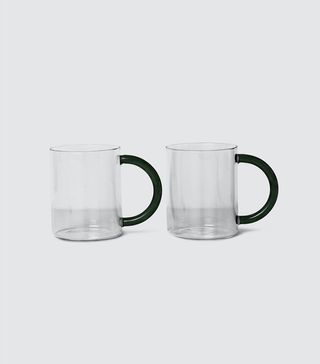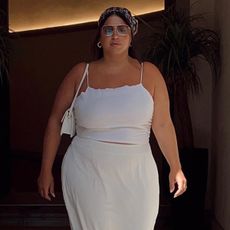These Are All the Good Things That Happen to Your Body When You Drink Coffee

Whether you have a five-cup-a-day habit or only drink it occasionally, you've probably read about the negative effects of coffee on the body. It might have been scary enough to keep you off of it and look for alternatives to get your energy and concentration levels up throughout the day. But you know that quitting coffee (and caffeine) can be tough, especially when you're so used to your daily dose of the stuff. Caffeine withdrawals are real not exactly pretty.
But coffee and caffeine can get a bad rap sometimes. How much you consume will determine if it's good or bad for your health. Moderation is key here (and isn't that the case for everything?).

For healthy adults, the FDA says that consuming 400 milligrams a day (that's about four to five cups) is not associated with dangerous, negative effects. The guideline is general, the FDA notes, as everyone has different sensitivities to caffeine and how they metabolize it. And if you have some conditions, like you're taking certain medication or you're pregnant, you should check with your doctor on the recommended amount of consumption.
So now that you know that coffee and caffeine aren't all that bad, when consumed in moderation and with your own body's reaction to it in mind, we're here to tell you that there are some benefits to drinking coffee. Take a look at what we found out below, according to science. It's important to know, though, that much research still needs to be done on the health benefits, but many studies have delivered promising results.
Ups Your Energy Levels

Although this fact is pretty well-known, we had to include it. A cup of coffee can leave you energized, focused, and with a clear head. "Caffeine binds to something called adenosine receptors," One Medical's Jessica Bushy, FNP, told us. "By binding to these receptors, the adenosine in our brain can no longer bind or fit there. The natural effect adenosine typically has on our brain is that it makes us tired. However, since it's the caffeine that's now at that receptor site, it doesn't slow things down like adenosine would but actually wakes things up."
Can Make You Live Longer

Recent studies have found a link between coffee and decreased mortality. A 2015 study in Circulation found that higher consumption of coffee was associated with lower risk of mortality. Although the study authors couldn't find a direct cause-effect relationship between coffee and mortality, the findings suggest that coffee consumption can be incorporated into a healthy lifestyle.
Another 2017 study in the journal BMJ found that drinking coffee is "more likely to benefit health than harm it." The authors in that study maintained that it's a benefit if consumed in moderation but that there may be some harm involved if you're pregnant or a woman at risk of fracture.
Protection Against Parkinson's and Alzheimer's Diseases
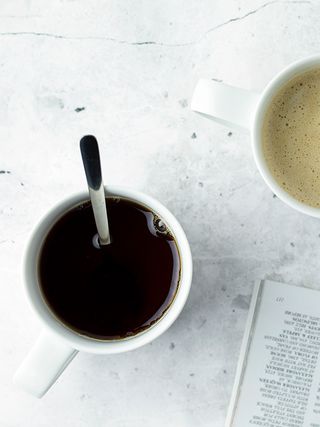
There have been a couple of studies that looked at the link between coffee and the risks of Parkinson's and Alzheimer's diseases. One recent 2018 study suggests that coffee consumption might decrease the risk of both diseases. They found that a group of compounds found in coffee—phenylindanes—have some kind of effect on warding off cognitive decline. And the darker the roast, the more protective it is. The authors did caution that more research needs to be done.
Protection Against Cardiovascular Diseases

According to Johns Hopkins Medicine, coffee consumption can decrease your risk of cardiovascular diseases like heart disease and stroke. Studies have found that drinking one to two cups of coffee a day can help ward off heart failure, while at least one cup can lower stroke risk for women.
Enhance Exercise Performance

You already know exercise is very important for a healthy lifestyle—and coffee can help when you're feeling sluggish. According to One Medical, research has shown that coffee can help fight fatigue, which in turn will help you exercise more. It can also strengthen muscle contraction, reduce pain perception, and increase fatty acids in the blood to enhance performance.
It's Good for Your Liver

A 2017 study in the Journal of Hepatology found that drinking coffee or herbal tea may prevent the hardening of the liver and has the potential to prevent advanced liver disease.
Reduces the Risk of Developing Type 2 Diabetes
According to the Harvard School of Public Health, researchers found that people who increased their daily intake of coffee over a four-year period had an 11% lower risk of developing type 2 diabetes than people who didn't up their consumption. And in fact, those in the study who didn't increase their daily caffeine servings by more than one cup a day increased their diabetes risk by 17%.
The study authors do caution that while this is good news, coffee is only one prevention factor—eating right and exercising regularly will always help, too.
Makes Your Bones Stronger

And in another study published in 2019, researchers found that in a sampling of 564 people, those who regularly drank coffee had higher bone mass density than those who didn't. The Cleveland Clinic added that the study identified three metabolites in coffee that are good for bone health, which can help future research.
Reduces Risk of Some Cancers

Coffee and caffeine, in general, may play a role in the likelihood of developing some cancers, too. A 2015 study observed more than 400,000 people over 10 years and found that those who drank four or more cups of coffee every day had a 20% lower risk of developing melanoma.
And it also has potential effects on colorectal cancers, as found in a study published in 2016. The researchers found that drinking coffee is associated with a lower risk of developing that type of cancer, and the more coffee consumed, the lower the risk. Drinking one to two cups a day is linked to a 26% reduction, while drinking more than two and a half servings is linked to a 50% reduction.
It's Packed With Good-for-You Antioxidants
According to One Medical, scientists have found more than 1000 antioxidants in unprocessed coffee beans, and even more develop during roasting. Antioxidants are known to fight inflammation, which is a source of many common diseases and conditions.
Can Help Prevent the Effects of Aging

This is where the antioxidant/inflammation benefit plays in. Because coffee has those good-for-you ingredients, recent studies have shown a link between the beverage and healthful aging. One 2017 study found that its potential anti-aging effects can contribute to the prevention of age-related diseases.
Can Boost Your Mood

One Medical also says that there have been numerous studies that have linked coffee to lower rates of depression. One reason for this is that caffeine can activate neurotransmitters like dopamine and serotonin, which affect your mood.
Our Favorite Coffee Picks
You might be in the mood for a cup now that you've read about all the benefits. Check out some of our favorite coffee-related products below:
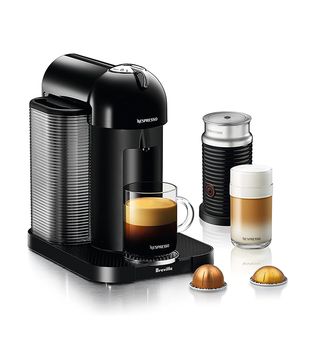
If you really want to treat yourself, invest in a Nespresso machine. This one also comes in a set with a milk frother.
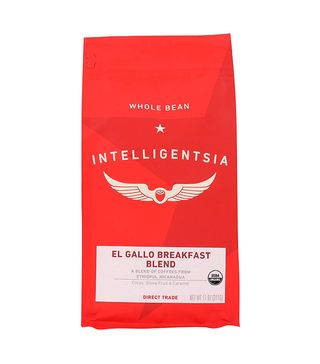
This blend from Intelligentsia has flavors of citrus and stone fruits and hints of nougat and caramel.

You're going to need a good coffee bean grinder if you want to make your own brew at home. This one from Krups can grind up to the equivalent of 12 cups of coffee.
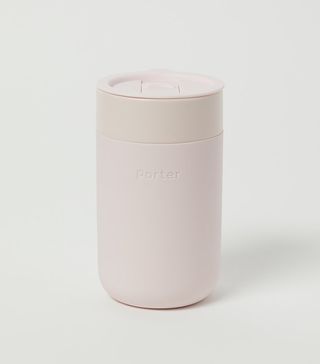
Here's another option for a reusable mug. This one is made of ceramic and matte silicone.
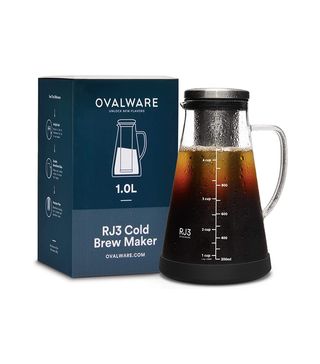
If you're like me and prefer to have your coffee ice-cold, this one makes it easy to brew it at home. And you can keep the cold brew in the fridge fresh for up to two weeks.
Next up: 7 Things Coffee Does to Your Skin
This article was originally published at an earlier date and has been updated.
Disclaimer
This article is provided for informational purposes only and is not intended to be used in the place of advice of your physician or other medical professionals. You should always consult with your doctor or healthcare provider first with any health-related questions.
Sarah is lifestyle writer and editor with over 10 years of experience covering health and wellness, interior design, food, beauty, and tech. Born and raised in Los Angeles, she attended New York University and lived in New York for 12 years before returning to L.A. in 2019.
In addition to her work on THE/THIRTY and Who What Wear, she held editor roles at Apartment Therapy, Real Simple, House Beautiful, Elle Decor, and The Bump (sister site of The Knot).
She has a passion for health and wellness, but she especially loves writing about mental health. Her self-care routine consists of five things: a good workout, “me” time on the regular, an intriguing book/podcast/playlist to unwind after a long day, naps, and decorating her home.
-
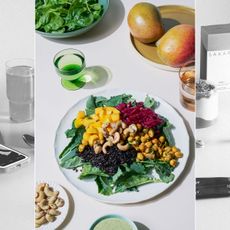 I Only Ate Sakara Life Meals for 30 Days—Here Are 7 Things That Happened
I Only Ate Sakara Life Meals for 30 Days—Here Are 7 Things That HappenedThe brand's 30-Day Fall Reset is finally here.
By Erin Jahns
-
 The 6 Warning Signs You're Not Getting Enough Protein
The 6 Warning Signs You're Not Getting Enough ProteinAnd what to eat to up your intake.
By Sarah Yang
-
 Everything This Professional Ballet Dancer Eats to Fuel Her For Performances
Everything This Professional Ballet Dancer Eats to Fuel Her For PerformancesHer grocery staples include high-quality French butter.
By Candice Aman
-
 These 8 Foods Are the Worst for Rosacea—Here's What to Eat Instead
These 8 Foods Are the Worst for Rosacea—Here's What to Eat InsteadControl those flare-ups.
By Sarah Yang
-
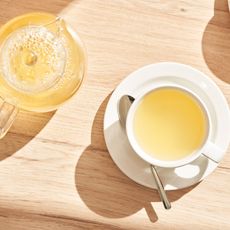 15 Things That Cause Bloating and How to Get Rid of It ASAP
15 Things That Cause Bloating and How to Get Rid of It ASAPTry these.
By Sarah Yang
-
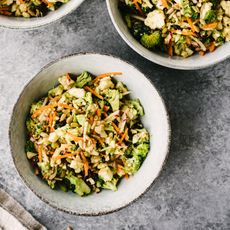 Is the Alkaline Diet Overhyped? What Experts Want You to Know
Is the Alkaline Diet Overhyped? What Experts Want You to KnowHere's how it works.
By Sarah Yang
-
 I'm an Imperfect Dietitian and My Key to Eating Healthy Meals Is Convenience
I'm an Imperfect Dietitian and My Key to Eating Healthy Meals Is ConvenienceTake a peek at my weekly grocery staples.
By Candice Aman
-
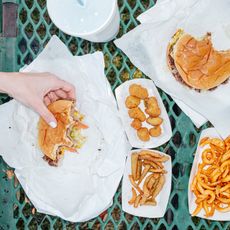 Avoid These 6 Foods—They'll Wreck Your Gut Health
Avoid These 6 Foods—They'll Wreck Your Gut HealthWhat to eat instead.
By Sarah Yang

